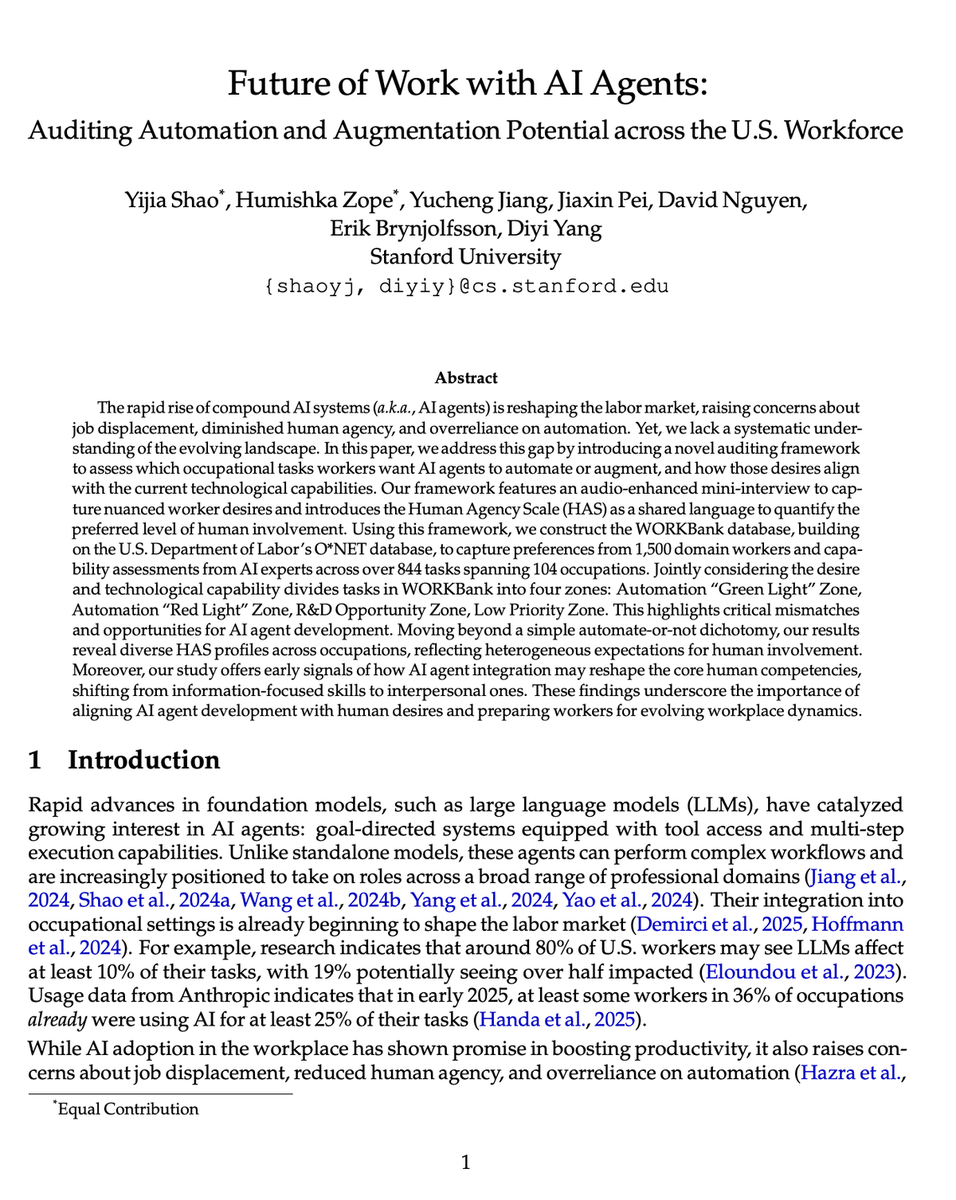
Yijia Shao
@echoshao8899
CS Ph.D. student @StanfordNLP. Previous: undergraduate @PKU1898.
ID: 1506457373430333447
https://cs.stanford.edu/~shaoyj/ 23-03-2022 02:26:54
310 Tweet
2,2K Followers
308 Following






Thanks Ethan Mollick for the discussion! While aligning models with individual feedback is more of a technical problem, building effective AI agents requires alignment at the workforce level--accounting for real work and societal impact. Blog summary: futureofwork.saltlab.stanford.edu


Listening to Mehran Sahami’s talk at Stanford CS Commencement Ceremony right now. I resonated a lot as the talk is centered around the discussion of automation vs. augmentation and human-centered technology 🤖👩👨

Big congratulations to Eric on receiving the Stanford University Arthur Samuel dissertation award today! Work on model editing, factuality, and direct preference optimization (DPO) CC Chelsea Finn











Extraordinary work from Yijia Shao and the kind of work that can help shape policy in an extremely fast moving AI world🚀🚀🚀. This are the kind of studies we need the most and huge congrats to Yijia and the team.







